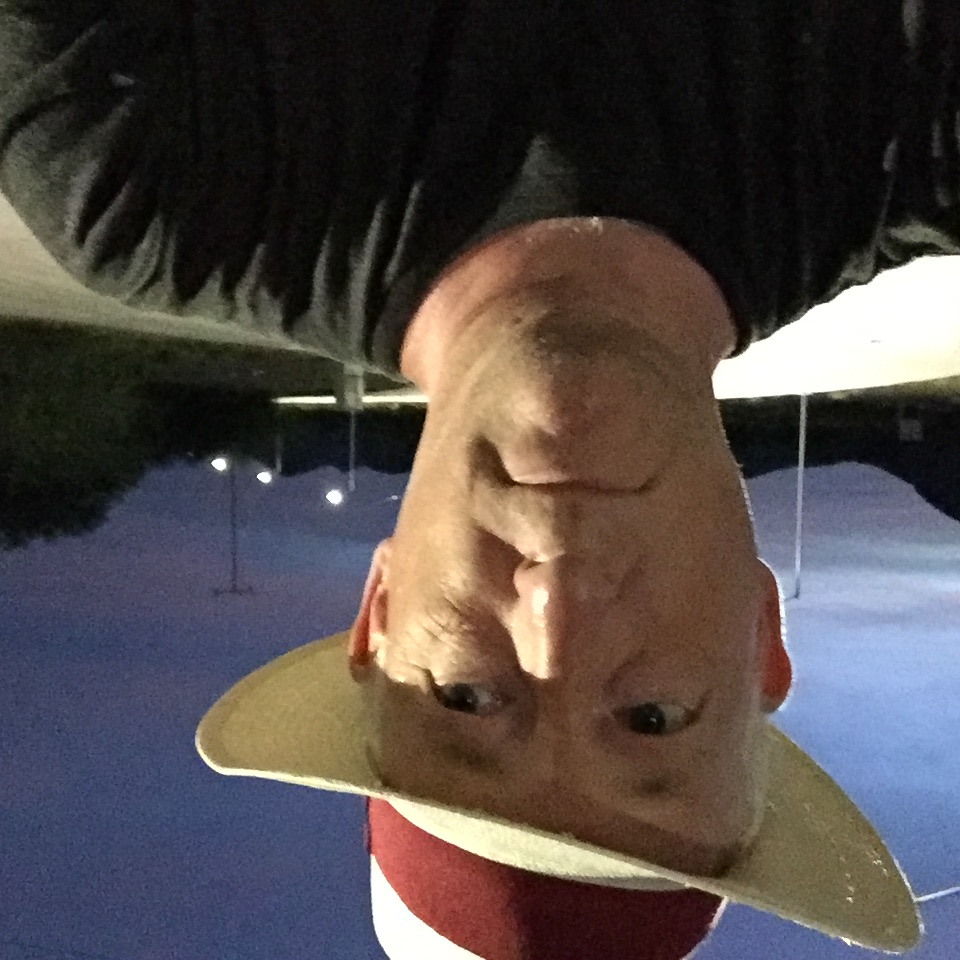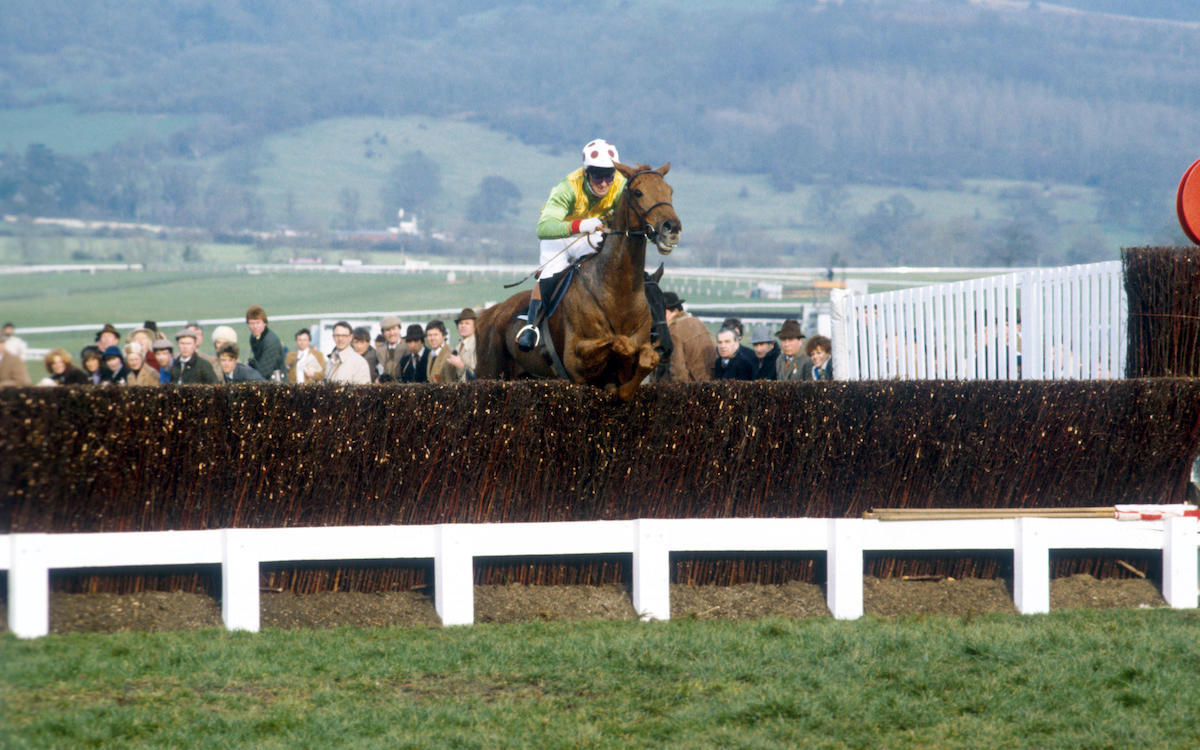
As the jumps season clicks into higher gear in Britain and Ireland, Steve Dennis remembers the Michael Dickinson-trained steeplechaser who was his childhood equine idol – and ignited a lifelong devotion to the sport

For Amanda Duckworth it is Silver Charm, for Richard Aller it was Dr. Fager, for Jay Hovdey it is Hill Rise.
For you, it is … well, you know who it is without even thinking. Heroes are much harder to find as time goes by, for the ones who get to you first are the ones who stay forever. The horse-shaped hollow just under our skin is already taken; no vacancies.
Bregawn was the first horse who made a lasting impression on me; he was the flame that lit the fuse. In the initial flush of interest, of unprompted, undirected affection, certain names can attain a local, legendary status beyond their capabilities.

That wasn’t the case for Bregawn, who in his time, for a time, was the most celebrated steeplechaser in the world. But that came after the before, after the seed had fallen on such reliably fertile ground, sprouted, thrown out roots.
A little professional explanation is probably necessary for this audience. Bregawn earned immortal fame by winning the Cheltenham Gold Cup in 1983, leading home the ‘Famous Five’ of trainer Michael Dickinson.
Before Dickinson turned his superpowers to winning Breeders’ Cup races and inventing a racing surface he was the dominant jump trainer in Britain, and his feat of saddling the first five finishers in that Gold Cup was a seismic moment in the history of the sport – Bregawn, Captain John, Wayward Lad, Silver Buck, Ashley House, a recital as familiar as the days of the week to those of a certain vintage.
It was the culmination of something that for me had begun just over a year earlier, one unexpectedly auspicious afternoon in January 1982. Now a little personal explanation is required.
My father worked on Saturdays, so he set the video recorder – ah, the technological miracles of the early 1980s – to tape the televised racing coverage.
Sometimes – homework done, the excitement of the football results an hour or two away – I watched the action live, picking out a horse in each race. That particular Saturday my metaphorical pin came down on Bregawn’s name in a handicap chase at Haydock Park. He won.
I didn’t pick many winners; I still don’t. Thus this unremarkable-looking steeplechaser, an average-sized beast in a plain chestnut wrapper, took on a certain mystique, an unusual glamour.
I, who had no frame of reference, no critical faculty for what I was watching, just an empty vessel unconsciously waiting to be filled, was suddenly captivated by him.
A week later, there he was again, at Doncaster. I didn’t need the pin; he stood out from the crowd like neon in the greyness of the newspaper. He won again.
Something was happening, between me and racing, between Bregawn and me. The following Saturday he appeared to me once more, this revelation in equine form, pursuing a hectic schedule of three runs within three weeks that I lacked the nous to realise was a highly unorthodox itinerary. This time it was Kempton Park; of course I picked him, he was my horse now.
And he won again. How could I not fall, headlong, for this horse?
The third time was the enduring charm, an affirmation of his brilliance and also my genius, for hadn’t I spotted this horse at the beginning of his ascent?
I was 12, and didn’t know the vast extent of what I didn’t know, but this much I knew. Bregawn was something special, quite out of the ordinary.
Six weeks later he was runner-up in the Cheltenham Gold Cup to his gifted stablemate Silver Buck, something I bravely rationalised as part of the great unpredictability of sport, the useful acceptance that you can’t win them all.
The following season was freckled with ups and downs, but at the end of it Bregawn reigned supreme with his Gold Cup triumph.
“He did not have the stamp of either a modern or an old-fashioned chaser,” said Dickinson. “He started his career in Ireland over hurdles and it took him a couple of years to learn to jump. As a novice, he had a few falls to his name. He was a funny old horse and battled hard to win the Gold Cup.”
I watched that race at six in the morning. Gold Cup day was a Thursday, of course a schoolday, and my father liked to watch the tape recording after everyone had gone to bed.
In those quaint pre-internet, pre-social media days it was easy to avoid finding out the result, and I set my alarm, got up before the sun, and tiptoed downstairs to watch the big race, just a boy and his horse.
I turned the volume down on the television, sat clenched tight with nerves, leaned breathlessly forward to watch Bregawn come galloping up the Cheltenham hill in glory.
It was Bregawn’s finest hour, and his last great day. His temperament let him down thereafter, most memorably at little Wincanton on a bitterly cold February day when he abruptly dug his toes in just after halfway and refused to continue.
At my earnest request, the race taking place at half-term, the whole family had come along on the three-hour drive to the racecourse. The journey seemed much longer on the way home.
He didn’t want to do it any more, he no longer saw the point, and his career guttered out with a series of increasingly mutinous performances, his presence disappearing from the radar but never from that place just under my skin, where he remains undisturbed by a succession of temporary favorites, a tenure eternal.
Bregawn lived to the ancient age of 33, spent his long retirement at his owners’ Mylerstown Stud in Ireland, where he supervised the foals and yearlings.
He became the last remaining member of that Famous Five, and when he finally followed his band of brothers into eternity the news of his death – just as the memory of him is doing now – transported me back in time.
Here I am again, a cold day, a warm room, the racing on television, watching Bregawn win once, twice, three times, as beguiling as a magic trick.
After him, everything else has followed. And you never forget.
• Visit the Cheltenham Racecourse website
Silver Charm, the horse who made me fall in love with racing – Amanda Duckworth
View the latest TRC Global Rankings for horses / jockeys / trainers / sires


